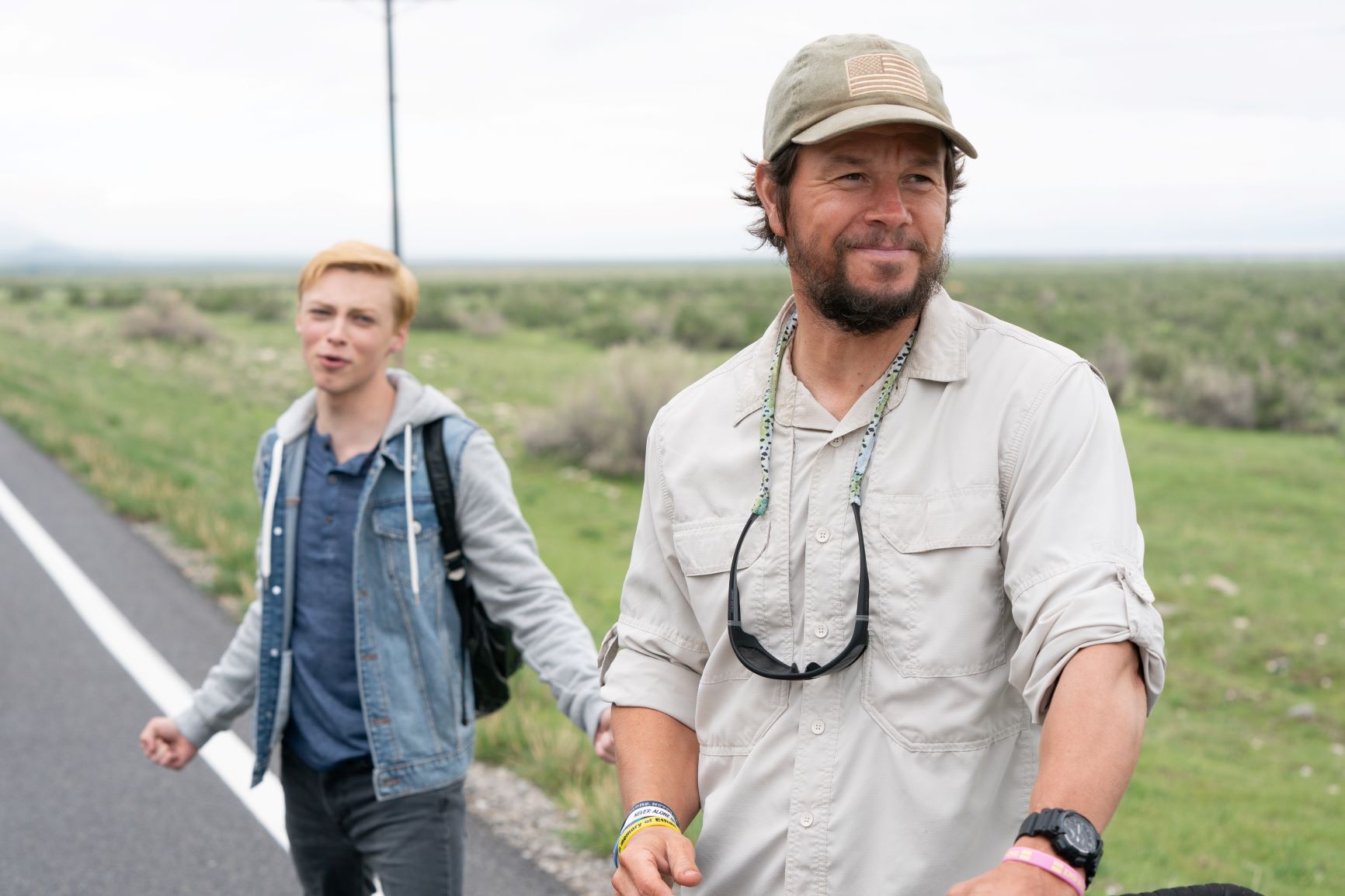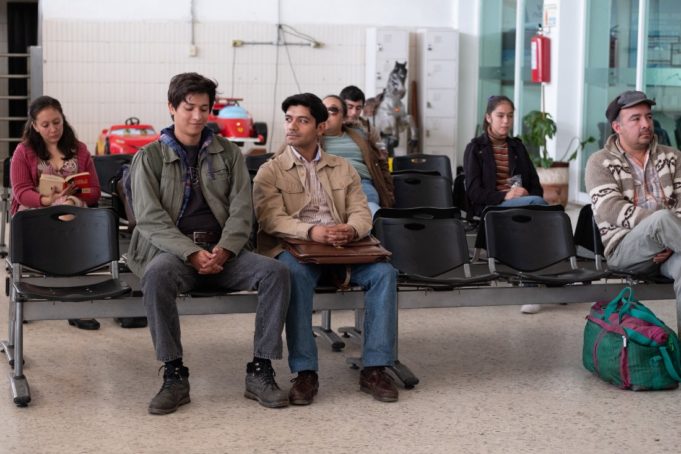Pride Month was last month, but it’s this week that two movies about gay people reach our theaters. We start with I Carry You With Me (Te Llevo Conmigo), which won two prizes at the 2020 Sundance Film Festival before the pandemic scuttled its initial release plans. This docudrama comes to Grand Berry Theater this weekend, and while it may be somewhat underwhelming given the advance hype, it does have its modest appeal.
Based on the lives of Iván García and Gerardo Zabaleta, the story turns García into Iván Campos, whose life is told in three separate storylines that all blend together. In the 1980s, he’s a boy (Yael Tadeo) in Puebla, Mexico who is discovered wearing a dress by his father. About a decade later, he’s a young man (Armando Espitia) whose girlfriend (Michelle González) forbids him from seeing their son after she finds out that he’s frequenting gay clubs and has fallen for Gerardo (Christian Vázquez), a rich landowner’s son. In the present day, he’s a middle-aged chef (played by García himself) with his own restaurant in New York City celebrating his success but also mourning the fact that he can never go back to his homeland without losing everything, and can no longer see his son (Paco Luna), who has grown into a young man.
Director Heidi Ewing has spent this century making documentaries about evangelical Christians (Jesus Camp), urban decay in Detroit (Detropia), and Hasidic Jews (One of Us) with her filmmaking partner Rachel Grady. Her first dramatic feature and her first solo effort is elliptical and lyrical, a Proustian meditation on the lingering power of memory to shape our futures. “When you dream, it happens so fast,” says Iván. “The American dream happens in slow motion. It takes years.” The protagonist wants to be a chef, so the thread going through here is food, as young Iván makes chiles en nogada and observes the barbaric foodways when he reaches New York: “They don’t use cilantro, and they put parsley on everything. They’re weird here.”
It’s all perfectly lovely, and not a great deal happens. We see a coyote leaving Iván and his friend Sandra (Michelle Rodríguez — not the one from the Fast & the Furious movies) behind in the American desert because she’s fat and struggling to keep up, and we don’t learn until much later in the film that she survives the trek. Iván’s struggles to see his son are left at an impasse, which mirrors García’s life but can’t help being frustrating from a dramatic standpoint. The film works best as a gay love story, as Gerardo abandons his comfortable home in Mexico to join the man he loves and build a life together in America. “Life gives us all a surprise,” says Iván at the end to Gerardo. “You were my surprise.” If I Carry You With Me comes to a point, it’s that, and it’s surely one worth making.

Less successful is Joe Bell, which is also based on someone’s life. The drama’s main draw is that it’s from the final screenplay written by the late Larry McMurtry, along with his lifelong screenwriting partner Diana Ossana. Those two writers gave us one of the seminal gay films of our era in Brokeback Mountain, and that comparison, even if it’s unfair, doesn’t flatter this movie.
In the fall of 2013, Joe (Mark Wahlberg) is walking from his home in La Grande, Ore., to New York City, stopping along the way to speak at schools and public functions about bullying. His gay 15-year-old son Jadin (Reid Miller) is walking beside him, but you’ll only be surprised by the mid-film revelation if you’re not familiar with the real-life story. That’s because the other plotline takes place in the early part of the same year, when Jadin comes out to his dad, who handles it pretty badly: “He knows I accept him. Are we done here?” Brutalized at school and unable to confide in anyone, the boy commits suicide, and now his father is taking this long walk while talking to his son’s spirit and singing Lady Gaga songs with him.
I do like the way the script and Wahlberg portray Joe as a jerk even while he makes this public gesture of penance, as he curses out his other son Joseph (Maxwell Jenkins) for forgetting to flush the toilet when his family visits him on the road. Wahlberg sounds hopelessly Boston no matter what kind of American he’s playing, but he is engaged with the role here, which is more than can be said for the second-rate action-thrillers that he so often headlines. The best reason to see this is the newcomer Miller, whose single-episode appearance on TV’s You is the only other thing you might have seen him in. He’s not cowed by the luminaries in this cast (which includes Connie Britton as his mom and Gary Sinise as a Colorado lawman), and he shines when Jadin’s ghost tells his dad the bluntest truths about what his life was like. That takes a form of toughness that someone like Joe might not recognize as such, and Miller is terrific with it.
He also says that Joe’s talks are lame, which is borne out by what we see of them. Real life didn’t give this story a neat ending — the real Joe Bell was hit by a car and killed on that walk — but how hard would it have been to show him giving an effective speech? The better comparison point for this movie might be Wild, since they’re both stories of people putting themselves through the tedium of thousand-mile treks to clear their heads and discover a way forward. Joe Bell doesn’t sustain that comparison, either. It feels unfinished somehow. Like I Carry You With Me, Joe Bell suffers from a lack of a dramatic point, but that flaw is worse with this movie, because it’s trying to convey a message and loses it.
I Carry You With Me
Starring Armando Espitia and Christian Vázquez. Directed by Heidi Ewing. Written by Heidi Ewing and Alan Page Arriaga. Rated R.
Joe Bell
Starring Mark Wahlberg and Reid Miller. Directed by Reinaldo Marcus Green. Written by Diana Ossana and Larry McMurtry. Rated R.












